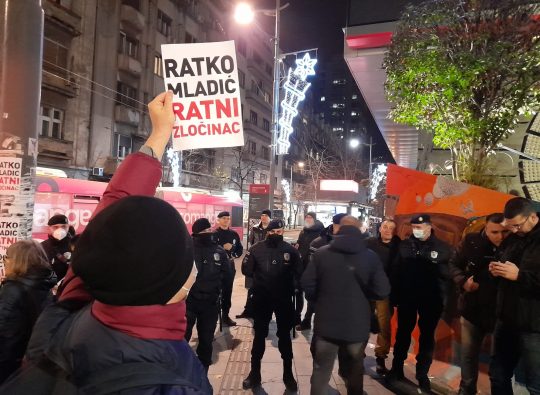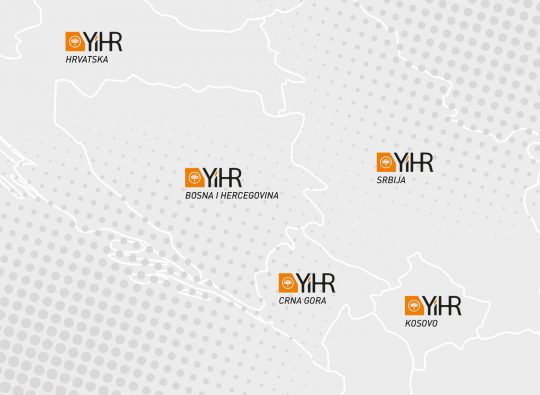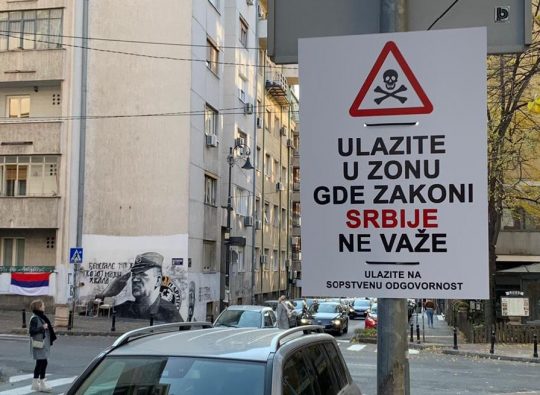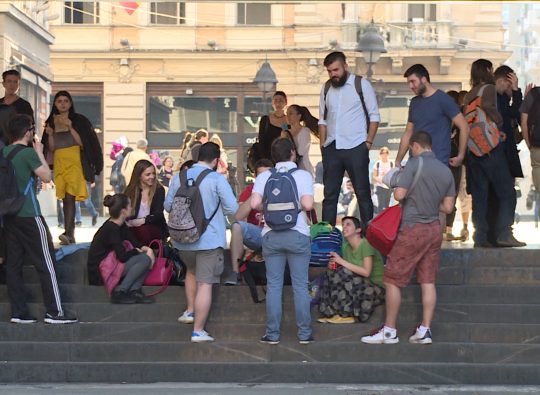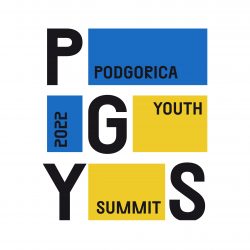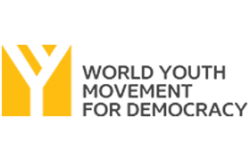Prime Minister Brnabić’s statement that Serbia is “dedicated to the examination of all war crimes, all crimes, as well as to arresting the accused and punishing those responsible for the crimes” is absolutely incorrect.
On the contrary: as far as Ratko Mladić is concerned, Serbia used to be his safe house, both figuratively and literally. Serbia’s institutions have never found and convicted those who had been hiding Mladić from courts for 15 years, those responsible for him receiving military pension in spite of being on the run and – the most painful of all questions – w two 21 year-old guardsmen, Dragan Jakovljevića and Dražen Milovanović, killed and by whom, on duty in Topčider in October 2004.
Serbia’s institutions have also not investigated or established responsibility for imprisoning the Bosniaks who, trying to get away from Ratko Mladić’s forces from the safe areas of Žepa and Srebrenica, escaped to Serbia across the Drina, and were detained in the detention camps Šljivovica and Mitrovo Polje in Serbia, where they were either subjected to torture and humiliation in the summer of 1995 or handed back to the Republika Srpska Army.
It is clear that Serbia is not willing to investigate war crimes and other criminal offences connected with the Srebrenica genocide and war in BiH.
President Vučić’s appeals for those convicted by the ICTY to serve their sentences in Serbia are also rather hypocritical and not quite truthful, as well as his statement that Serbia is ready “to take over obligations and liability for executing prison sentences that the Tribunal or Mechanism passed on the citizens of the Republic of Serbia, under the monitoring of the Mechanism and full respect for the authority of the Mechanism”.
Not only that Tribunal’s judgments are not being executed in Serbia, but they are completely ignored. Vojislav Šešelj’s parliamentary mandate was not terminated after ICTY’s conviction, although the Law on the Election of Members of parliament is clear – an MP shall lose their mandate after being sentenced to imprisonment longer than six months. Convicted officers of the Army were not stripped of their ranks, although the Law on Army clearly stipulates that the officer shall lose the rank in the event of being sentenced to imprisonment longer than one year. Criminals in Serbia are not losing privileges, they are given protection and promotion by the government authorities and para-governmental media. The Criminal Code does not prohibit the denial of ICTY judgments in the same way as it prohibits the denial of war crime judgments passed by the International Criminal Court and domestic courts.
Attempts to put the blame for the lack of reconciliation in the region on the ICTY are shameful. We are asking genocide deniers and war criminal promoters from the Serbian government – what have you done for the reconciliation in the region? What have the institutions you run and represent done to uncover war crimes, prosecute war criminals, recognise and give justice for victims of war crimes, establish what had happened to the missing persons and the register of victims of the 1990s wars, as well as investigate the circumstances of their death?
For a long time, Serbia was a safe house for war criminals. It still is for some of them, like Novak Đukić. Unfortunately, Serbia is not a factor of reconciliation in the region, in spite of all its attempts to carry that name. Nobody trusts and nobody wants to extend a hand to Serbia that celebrates and protects criminals.

